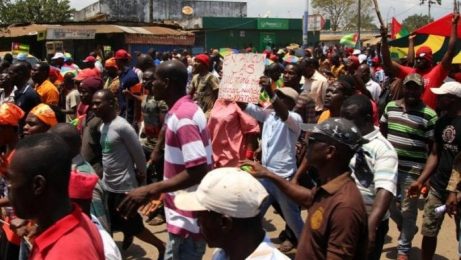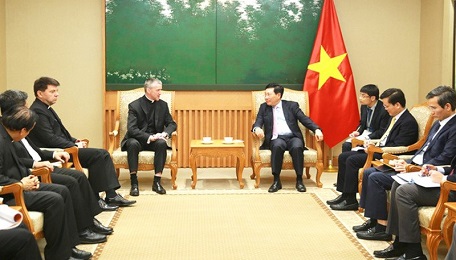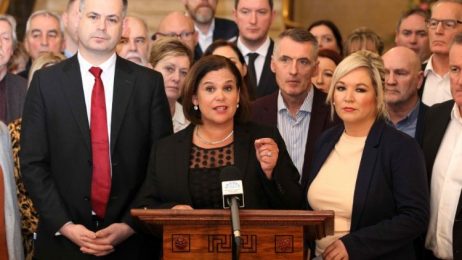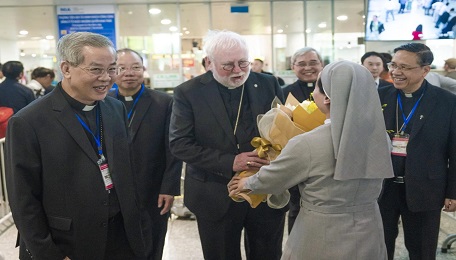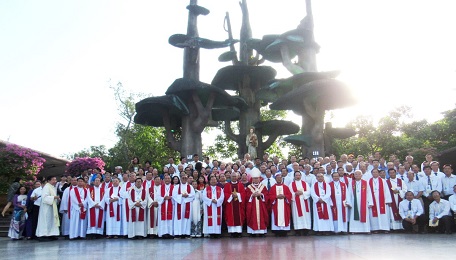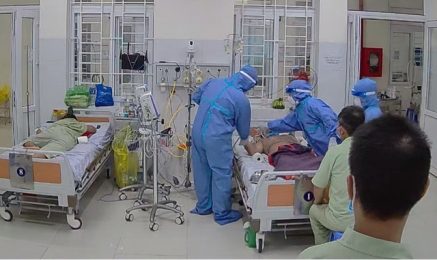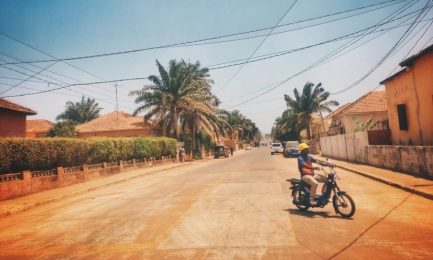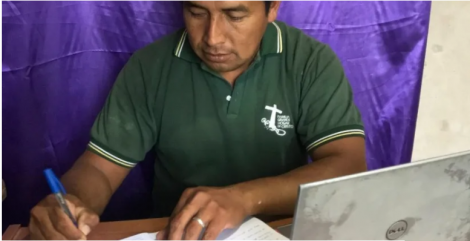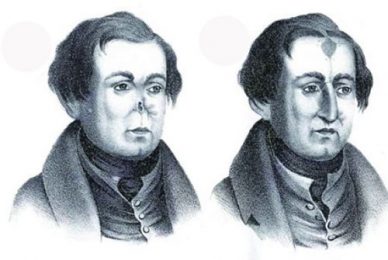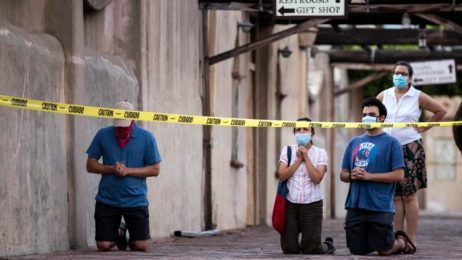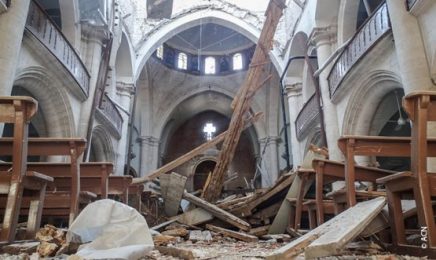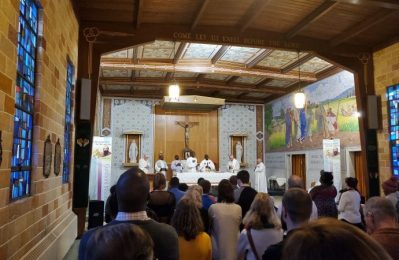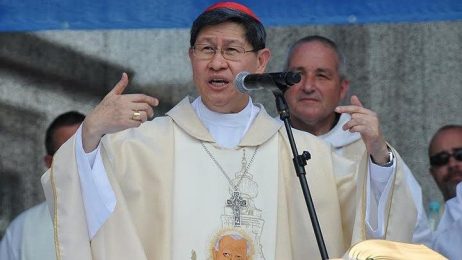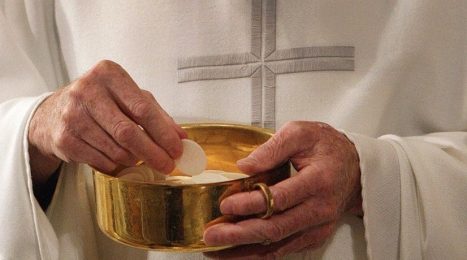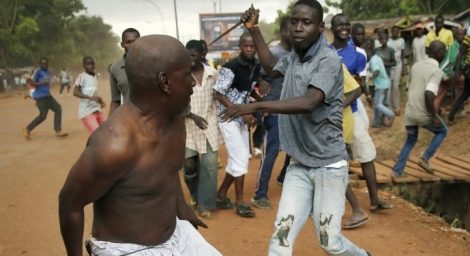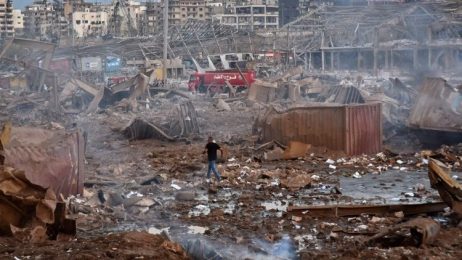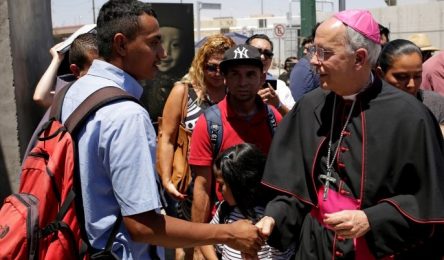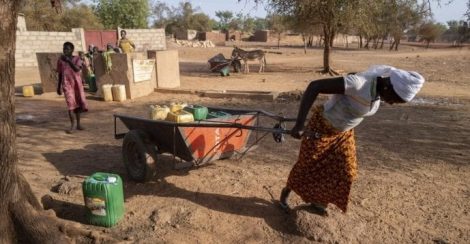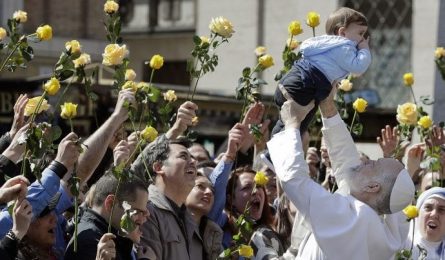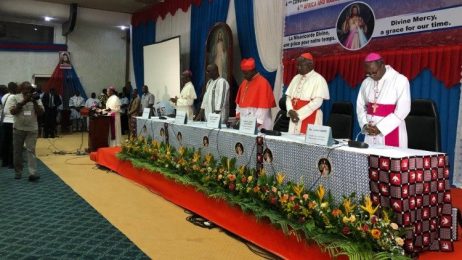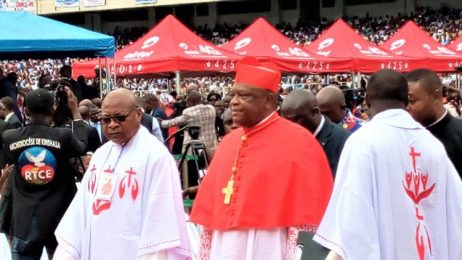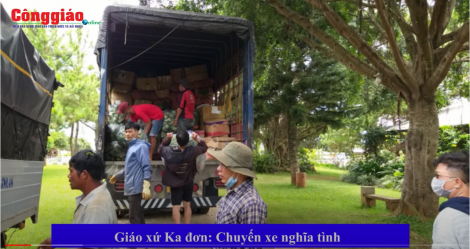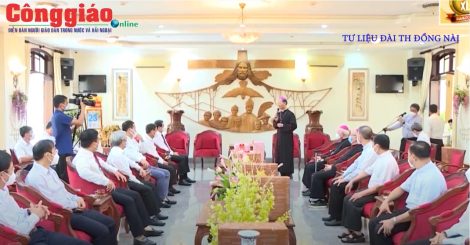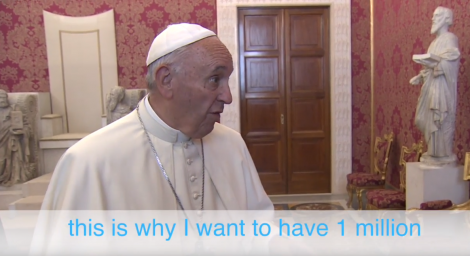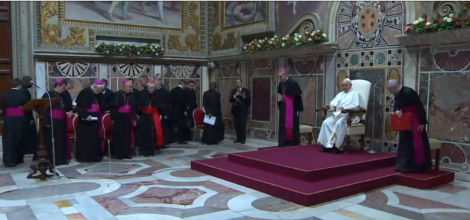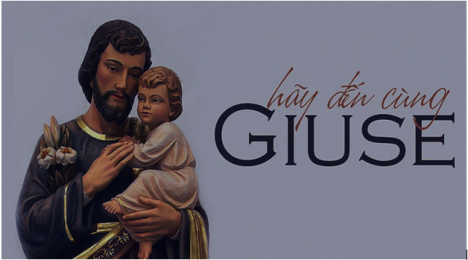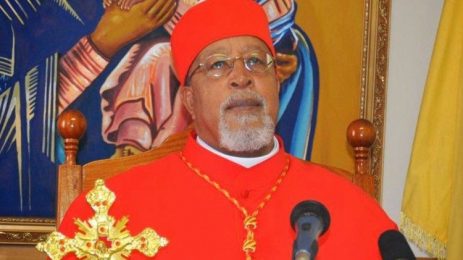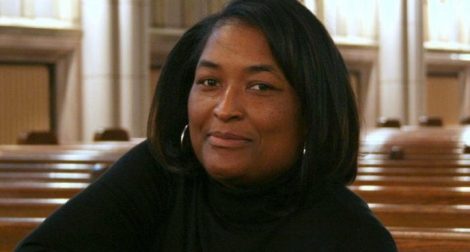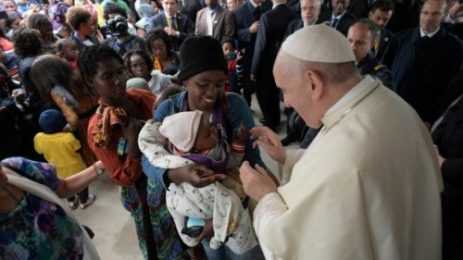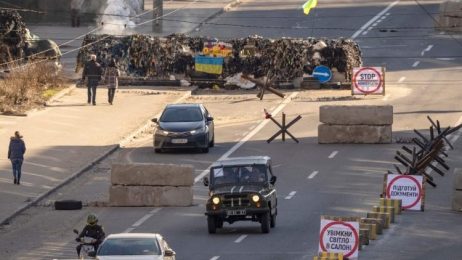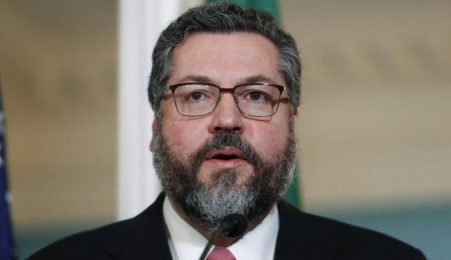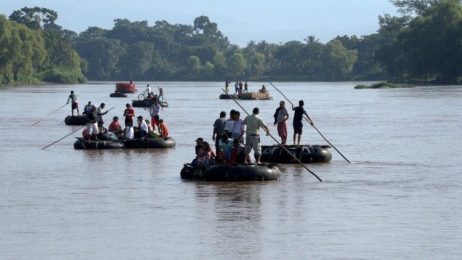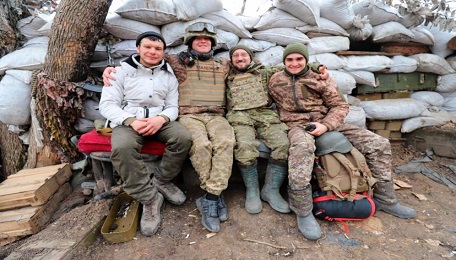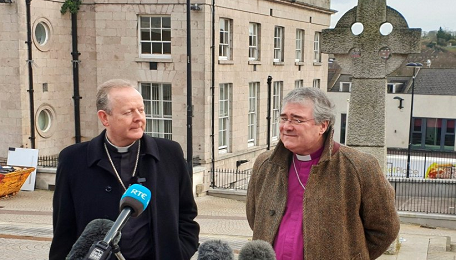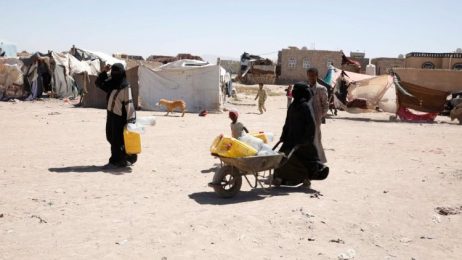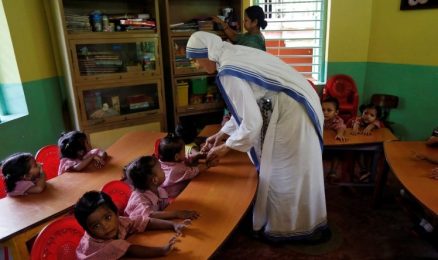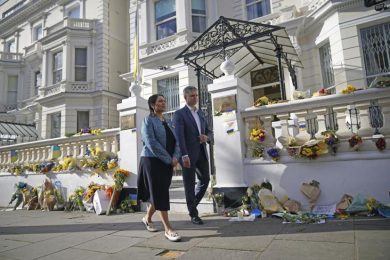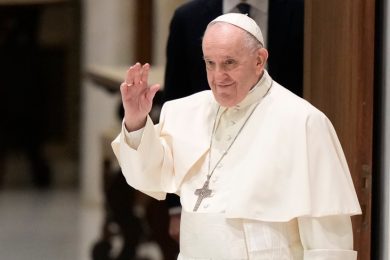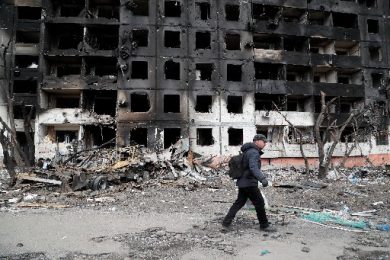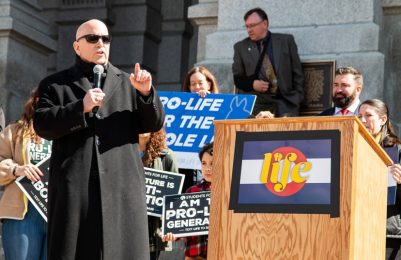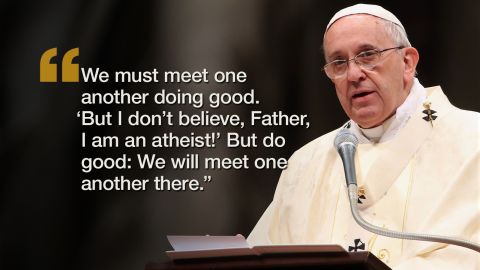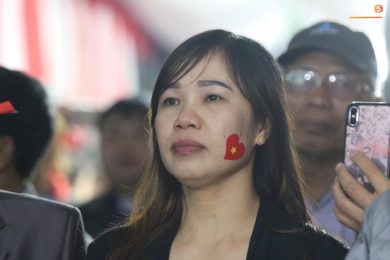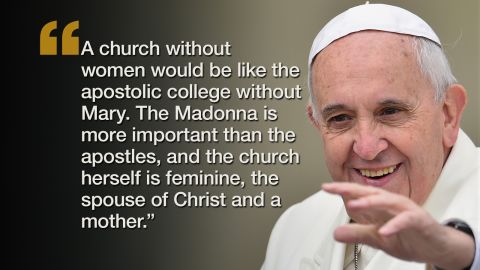WORLD CATHOLIC
COVID-19 pandemic threatens ‘fragile’ peace of Central African Republic
(CGOL) Cameroon – Central African Republic’s health minister is blasting the “big inequality crisis” in coronavirus testing as he sees rich countries conduct tens of thousands of tests daily while his own struggles to obtain supplies for a couple hundred at most.

In this Monday, Dec. 9, 2013 file photo, a Christian man chases a suspected Seleka officer in civilian clothes with a knife near the airport in Bangui, Central African Republic. Central African Republic and 14 rebel groups signed a peace deal on Wednesday, Feb. 6, 2019. (Credit: Jerome Delay/AP.)
Pierre Somse told a World Health Organization briefing on July 16 that “we are in a scarcity, a misery of tests” — a blunt assessment of the scrambling by African nations and rising fears as the pandemic’s first wave hits the continent of 1.3 billion people.
Central African Republic has more than 4,599 confirmed virus cases — a small fraction of the more than 832,000 across Africa — but the true number is unknown.
Central African Republic is one of the poorest countries in the world, and still suffering the effects of a civil war over 7 years ago.
In 2013, a Muslim rebel group called Seleka took over the government of the country, giving rise to the pro-Christian anti-Balaka militia movement. Eventually, Seleka was driven out, but tit-for-tat violence between nominally Muslim and Christian groups continues to this day, and the central government has trouble exercising power outside of the capital Bangui.
The country is 80 percent Christian, 10 percent Muslim, with the rest mostly following indigenous faiths. The Muslims are concentrated in the north of the country, although many work as merchants in the south.
The ongoing fighting has forced about a quarter of the country’s 4.5 million from their homes. Thousands more have been killed.
“The stability in CAR is fragile. To date, the pandemic has not led to unrest and it is not anticipated to lead directly to unrest,” said Joseph Muyango Nsengayire the project coordinator of the Central African Interfaith Peacebuilding Partnership, or CIPP.
The CIPP is led by Catholic Relief Services (CRS) – the official development agency of the U.S. bishops – and includes Islamic Relief Worldwide, World Vision International, Aegis Trust, and the CAR National Interfaith Peace Platform. It is funded by USAID, the U.S. government’s international aid agency.
He added that CRS is carefully monitoring the impacts of the COVID-19 pandemic on social divisions, as well as the deepening economic hardship.
“In CAR, as elsewhere, the government has imposed restrictions on the movement of people and goods, which has caused prices to rise,” Nsengayire explained.
“Borders with Cameroon and other countries are closed, disrupting supply chains. Schools, places of worship, and restaurants and bars have closed. Travel between towns is restricted, and the number of people permitted to travel in buses and taxis is greatly restricted to allow for social distancing,” he continued. “These restrictions have decimated people’s livelihoods, which for us is a big concern.”
Crux: CRS has partnered with USAID and come up with a “people-to-people reconciliation program – or Ita na Ita – to rebuild the shattered peace in the country. Obviously, your target is Christians and Muslims who have been fighting in the country. What kinds messages can help unite the different groups in the country?
Nsengayire: The Ita na Ita project works with various faith groups to address one of the root causes of conflict in CAR, which is economic inequality. In particular, youth of all faith groups feel a sense of exclusion from economic opportunity, despite the fact that they live in a country full of natural resources.
The Ita na Ita project encourages youth, and other community members, to create savings groups, and to take out loans so they can start small businesses. What’s more, since the start of the pandemic, CRS has integrated messaging on solidarity that is disseminated by radio, SMS, and in-person, through savings groups as well as through small groups called Listening Clubs. Messages include: “Fight the virus, not other people,” and “We are all in this together.”
You say since the arrival of COVID-19, public broadcasting has been critical to dispelling rumors about the disease and preventing community unrest. Is that an indication that the COVID 19 could lead to more unrest?
The stability in CAR is fragile. To date, the pandemic has not led to unrest and it is not anticipated to lead directly to unrest. However, CRS is carefully monitoring the impacts of the pandemic on social division (for which stigma can be a proxy) as well as the deepening economic hardship.
In CAR, as elsewhere, the government has imposed restrictions on the movement of people and goods, which has caused prices to rise. Borders with Cameroon and other countries are closed, disrupting supply chains. Schools, places of worship, and restaurants and bars have closed. Travel between towns is restricted, and the number of people permitted to travel in buses and taxis is greatly restricted to allow for social distancing.
These restrictions have decimated people’s livelihoods, which for us is a big concern.
What rumors were being spread around the virus?
There has been a fair amount of misinformation on social media platforms about COVID-19. In fact, there are rumors spreading that folk remedies can cure it. To counter such rumors and misinformation, CRS continues to raise awareness about disease transmission and prevention through public information campaigns.
The violence in the CAR has often pitted Christians against Muslims. The Archbishop of Bangui, Cardinal Dieudonné Nzapalainga, says it’s not an inter-religious conflict. What’s the real story?
The origins of the 2013 conflict are rooted in the country’s history over the last century and in deepening economic inequality. In fact, current tensions can be traced to fights over the country’s abundant natural resources, and to economic disparities between certain militant groups who committed widespread atrocities that have further destabilized the country. For example, Christians and Muslims were manipulated by militant groups such as the Seleka and the anti-Balaka, which inflamed pre-existing tensions and caused revenge killings on both sides.
The unrest that followed led to the destruction of homes, livelihoods and to massive displacement. Leaders from the three main religious groups were actively engaged in social cohesion activities before 2013. When the crisis hit the country, they immediately united as representative of all faiths and traveled through CAR, speaking in communities in an attempt to dispel misinformation and to teach that religion cannot be used as a reason to incite hatred or engage in war, but to bring people together.
Do you agree with the cardinal that it is a war over minerals? If so, who are those looking for the minerals?
Yes – in CAR, currently more than a dozen armed groups are fighting to control zones rich in minerals. But as discussed in my comments above, the continued fighting also relates to the deepening inequality between the “haves” and the “have nots.”
What are the pathways to a sustainable peace in the CAR?
The deep structural divides in CAR, along with the protracted nature of the conflict, demand a nuanced response toward sustainable peace, which should include: Creating space for dialogue that strengthens shared visions and values for peace building within the government and civil society organizations; promoting activities that encourage a peaceful coexistence, which reinforces social cohesion; providing mechanisms for non-violent conflict resolution; restoring state authorities and good governance; making sure there is an effective justice system that respects human rights for all; and support for livelihoods for youth and women.
This article included material from the Associated Press
cruxnow
(CGOL) O Trinity, we bless you because from all eternity you have chosen Mary to be the mother of the...
(CGOL) Taking care of the elderly, sick and infirm is always a difficult job, even a burden for many people....
(CGOL) A priest in Guinea-Bissau has received death threats after he posted critical comments about President Umaro Sissoco Embaló on...
(CGOL) Argentina – The northern Argentine city of Ingeniero Juarez, in the province of Formosa, is known for being hot...
(CGOL) A Christian with a mature conscience, in moral discernment, needs to understand the various aspects of the matter rather...
(CGOL) The Bishops of the United States respond to reports of increasing incidents of church vandalism and fires, and urge...
(CGOL) After nearly a decade of being caught in the middle of Syria’s bloody civil war, Christians in the country...
(CGOL) Ohio - One month after a major pan-African summit wrapped up in Nigeria, Ugandan missionary priest Father Ruffino Ezama...
(CGOL) Đức Hồng Y Luis Antonio Tagle của Manila đã đọc một bài giảng trong một thánh lễ trước khi...
(CGOL) In the Gospel (Luke 7:28), Jesus said to the crowd: "There is no one greater among men born of...
(CGOL)In his Christmas message issued on January 6, the head of the Ethiopian Bishops' Conference asks the faithfull to ask...
(CGOL) During his installation in the capital Lomé, Togo’s newest archbishop called on presidential candidates to be “servants of the...
(CGOL) With the start of the new year, a seasoned Philadelphia musician is taking on a new challenge as director...
(CGOL) Most Christians would agree it is wrong to hate someone, but it is also wrong to be indifferent, which...
(CGOL) British Cardinal Vincent Nichols is calling on the government of Prime Minister Boris Johnson to allow Ukrainian refugees “to...
(CGOL) Hailed in early news reports for its opening of top Vatican leadership roles to any baptized lay person, including...
(CGOL) A Ukrainian priest described escaping from his bombed-out parish in Mariupol and said he still hopes some Catholics will...
(CGOL) Testifying against legislation that would codify a right to an abortion into Colorado law, Archbishop Samuel Aquila of Denver...
(CGOL) In 2014, I published a list of ‘100 Best Catholic Movies.’ Below I have arranged the list not by...



